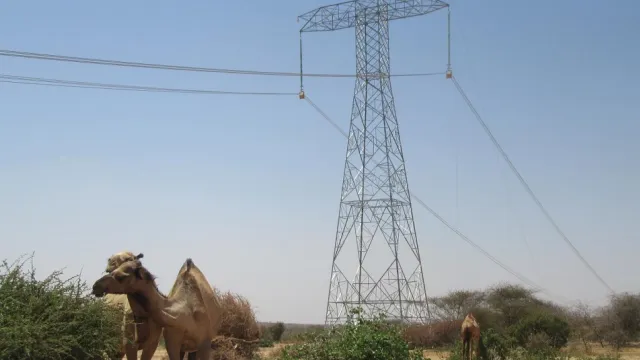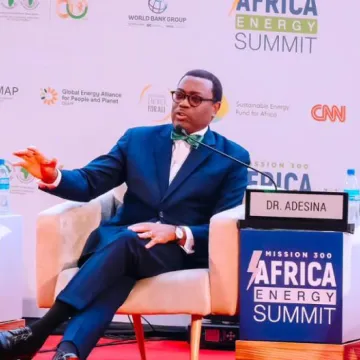Kenya joins energy push blueprint under World Bank-backed Mission 300

Since the launch of Mission 300, an estimated 30 million people across Africa have already been connected with power, with more than 100 million in the pipeline.
Kenya has joined hands with 17 allies in Africa to undertake reforms wired to speed up access to electricity under World Bank-backed Mission 300 that envisions energy as enabler of job creation, and economic growth.
Mission 300 is an initiative by the World Bank and the African Development Bank (AfDB) among other key partners that seeks to mobilize resources, and drive necessary reforms with a goal to connect approximately 300 million people in Africa with electricity by 2030.
At the Bloomberg Philanthropies Global Forum in New York held on the sidelines of the United Nations General Assembly last week, a new cohort of 17 African nations including Kenya signed national energy compacts, effectively adopting plans of action that will guide on public spending, and reforms in the sector.
“Electricity is the bedrock of jobs, opportunity, and economic growth," said World Bank Group President Ajay Banga at the Bloomberg Philanthropies Global Forum.
He added, "That's why Mission 300 is more than a target—it is forging enduring reforms that slash costs, strengthen utilities, and draw in private investment.”
President William Ruto of Kenya said, “Energy is a key enabler under the infrastructure component of Kenya’s Bottom-Up Economic Transformation Agenda. The Energy Compact anchors our commitment to achieve universal access to electricity and clean cooking and transition our grid to full reliance on clean energy by 2030.”
At the forum, the national energy compacts were signed by Kenya, Lesotho, Mozambique, Namibia Burundi, Cameroon, São Tomé and Principe, Sierra Leone, Comoros, Benin, Botswana, Ethiopia, the Republic of the Congo, Gambia, Ghana, Guinea and Togo.
Developed and endorsed by policymakers in Africa with technical support from development partners such as the AfDB and the World Bank, national Energy Compacts are primary pillars of Mission 300. They are tailored to meet each country's unique needs, offering practical steps to integrate—infrastructure, financing, and policy in accelerating access to electricity.
The 17 countries add to an earlier cohort of African nations that signed their energy compacts, committing to reduce risks, tackle bottlenecks and firm up energy utilities. These nations include Liberia, Madagascar, Chad, Niger, Nigeria, Côte d'Ivoire, Senegal, Tanzania, Democratic Republic of Congo, Zambia, Malawi, and Mauritania.
According to statistics from the World Bank, since the launch of Mission 300, an estimated 30 million people in Africa have already been connected, with over 100 million in the pipeline.
"Reliable, affordable power is the fastest multiplier for small and medium enterprises, agro-processing, digital work, and industrial value-addition,” said AfDB Group President Dr. Sidi Ould Tah. "Give a young entrepreneur power, and you’ve given them a paycheck."
Other key partners driving Mission 300 agenda are: World Bank's Energy Sector Management Assistance Program (ESMAP) trust fund, the Rockefeller Foundation, Sustainable Energy for All (SEforALL), and the Global Energy Alliance for People and Planet (GEAPP).




